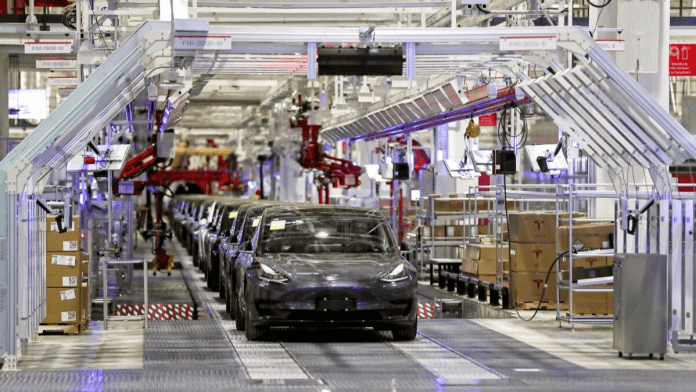🕒 Last updated on September 11, 2025
China has found a powerful way to sell electric vehicles (EVs) in Chile without paying import taxes. Chinese EVs can now reach Chile through two separate trade paths, giving them a major edge in the South American market.
China’s New Advantage in Chile’s Electric Vehicle Market
The first path is the longstanding China–Chile Free Trade Agreement (FTA). Under this agreement, EVs made in China can enter Chile at 0% import duty. This has made Chinese vehicles more affordable for Chilean buyers and strengthened China’s position in the market.
The second, newer path is through Indonesia. Thanks to the Indonesia–Chile Comprehensive Economic Partnership Agreement (IC-CEPA), EVs manufactured in Indonesia can also enter Chile tax-free. Chinese manufacturers can take advantage of this route by exporting their vehicles via Indonesia, effectively bypassing import taxes again. This “double route” creates more flexibility for Chinese carmakers and expands their reach.
Chile has been actively working to make its EV market more open. By allowing zero tariffs on EVs from both China and Indonesia, the country is encouraging competition and offering consumers more affordable options.
Understanding the China–Chile Free Trade Agreement
The China–Chile FTA was signed in 2006 and has steadily reduced tariffs on a wide range of products. EVs fall under this agreement, meaning Chinese-made vehicles can enter Chile without paying import taxes.
This 0% tariff is important because import taxes can make vehicles significantly more expensive. By eliminating these taxes, Chinese EVs become more competitive compared to local or other imported brands. This helps China’s automakers capture more market share in Chile.
Over the years, the FTA has been updated and expanded. More products, including technological goods and energy solutions, have been added under the tariff-free list. EVs are a key part of this strategy, especially as countries worldwide push for cleaner energy and electric mobility.
The FTA also reflects the strong economic relationship between China and Chile. Both countries benefit from easier trade and increased exports. For Chile, this means access to affordable, modern EVs. For China, it ensures a stable market for its automotive industry.
The Role of the Indonesia
The IC-CEPA is another important agreement that Chile has signed, this time with Indonesia. It became effective in August 2019 and has eliminated tariffs on most Indonesian exports. Among these are automotive products, including EVs.
This is where Chinese EVs can also benefit. By exporting vehicles through Indonesia, Chinese manufacturers can enter Chile at a 0% import rate. Essentially, this gives China a second pathway into the Chilean market.
Why Poland’s shootdowns matter: first on-territory intercepts raise Article 5 questions
IC-CEPA covers thousands of products, making trade between Indonesia and Chile smoother and cheaper. The agreement encourages more economic collaboration and provides companies with cost-saving opportunities. For Chinese automakers, using this pathway is a strategic advantage because it reduces overall costs and allows them to offer better prices in Chile.
This second route shows how international trade agreements can be leveraged in creative ways. Companies can optimize logistics, reduce costs, and reach new markets faster. For Chile, it opens up options to receive a wider variety of EVs at competitive prices.
Implications for Chile’s EV Market
Chile has been pushing for cleaner energy and sustainable transportation. Reducing tariffs on EVs is part of this strategy. Making EVs more affordable encourages consumers to switch from traditional gas-powered vehicles to electric ones, helping reduce carbon emissions.
By giving Chinese EVs two tariff-free paths, Chile is promoting competition and increasing consumer choice. This could make EVs more common on Chilean roads and accelerate the shift toward greener transportation.
It also highlights how international trade agreements can shape domestic markets. When countries reduce tariffs, they influence product availability, pricing, and adoption rates. In this case, Chile’s policies are helping EVs become more accessible and attractive to buyers.
Moreover, this dual pathway could inspire other countries to consider similar trade strategies. By leveraging trade agreements and regional partnerships, nations can encourage innovation, improve affordability, and expand access to new technologies like electric vehicles.
China now holds a unique position in Chile’s EV market. With the China–Chile FTA and the IC-CEPA via Indonesia, Chinese EVs have unmatched access and cost advantages. These developments are likely to shape the current market, increase competition, and provide more options for Chilean consumers.

